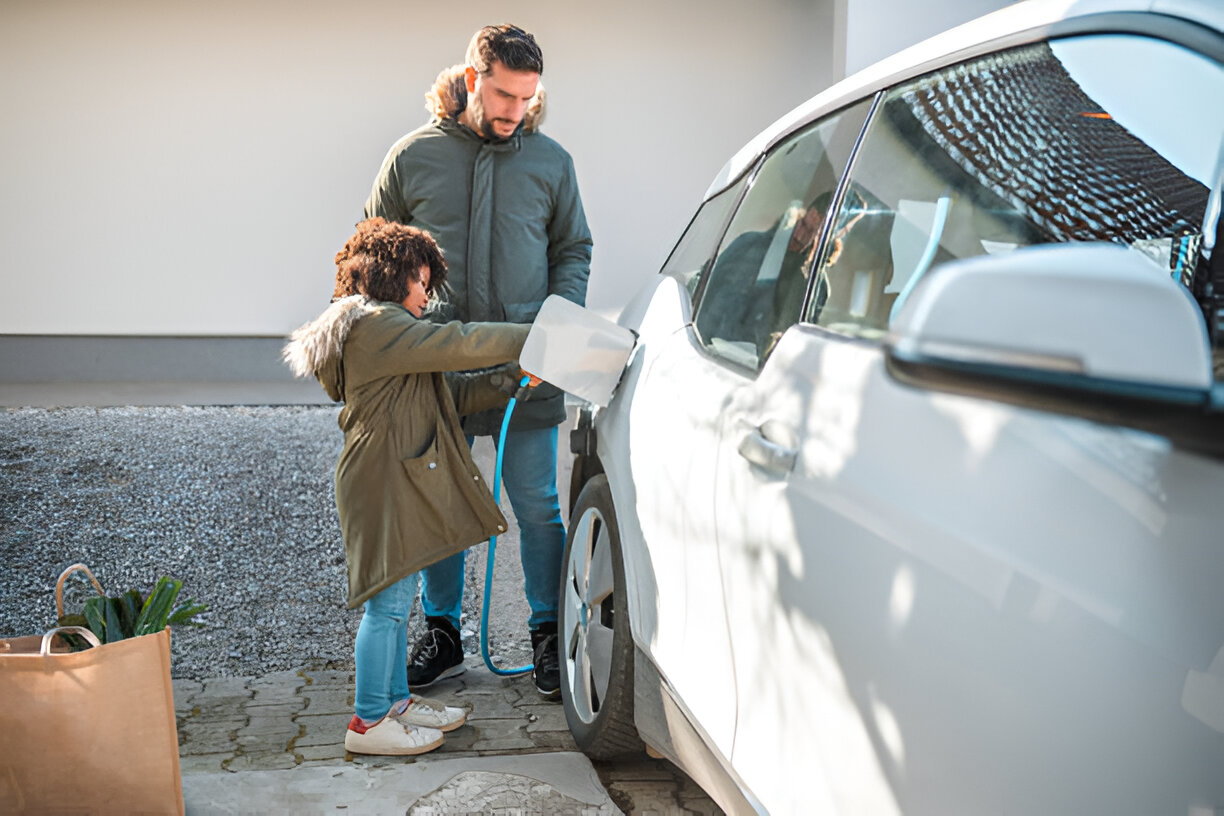

EV Charging Installation: A Brief Overview
As the world shifts towards sustainable living, electric vehicles play an important role in creating a greener future. But having an EV comes with the question of how to ensure that your vehicle is always charged and ready to go. Home EV charging installation is a smart solution that not only will make your driving experience better but also will contribute to a sustainable lifestyle. In this guide, we will explore briefly on the process on EV Charging Installation in your home, from your electrical system to choosing the appropriate charging equipment and understanding installation costs. We will empower you to make informed decisions. We will provide you the required knowledge to seamlessly integrate EV,into your daily routine, paving the way for a more efficient future. Come on, let’s unlock how you can have an easier EV journey, together !!!
Understanding Electric Vehicles (EVs)
Electric vehicles are an innovation in the automobile industry. They offer you a cleaner and more efficient alternative to gas-powered cars. These vehicles are powered by electric motors that get energy from rechargeable battery packs. Now, let’s talk about Why having EV chargers at home is an added advantage for you. One important convenience that you can have is charging your vehicle and powering it up according to your convenience. Unlike other traditional vehicles, you don’t need to go to the gas station; you can charge your electric vehicle overnight in the comfort of your garage.
The Importance of Home EV Charging Stations
The process of EV Charging Installation in your home will not only make things convenient for you; it also plays a crucial role in optimizing performance of your vehicle in the long run. Regularly charging at your home will ensure that your EV battery is kept in optimal condition, which can enhance the overall life span.This means you will be able to fully charge your battery in a matter of hours. This will help you to easily manage your charging schedule.
Types of EV Charging Stations
Understanding the different types of EV charging stations is very important when it comes to taking an informed decision as to which one is right for your home for your ease of convenience I will explain one by one by one.
Level 1 chargers
These are the most basic type of chargers for a household unit. This is very easy to install and it doesn’t require additional electric work. while this may be sufficient for drivers with short daily commutes, it can be insufficient for those who need to charge for longer driving distances.
Level 2 chargers
These represent a significant upgrade from level 1 chargers, using a 240-volt outlet similar to those that are used for large home appliances. These chargers need to be installed professionally, but they have faster charging speeds. So these chargers provide 15 miles of range. This makes a level two charger ideal for overnight charging so that your vehicle is fully charged and ready to go in the morning. When it comes to home EV Charging Installation, this type of charger is ideal because it will help to balance your charges, convenience and charging efficiency.
Level 3 chargers
This is very fast charger which is capable of adding hundreds of miles of range in just 30 minutes. However, they are mainly designed for commercial use, not personal use, and a very heavy electrical infrastructure is necessary to operate these chargers. Installing these in residential settings requires a very high cost. They are usually found at public charging stations along highways and in urban areas to facilitate long-distance travel.
Key Factors to Consider Before Installation
During the EV Charging Installation process you need to consider certain factors to do it successfully.
- Your home’s electrical supply. You must make sure that your home’s electrical system can support the additional load of an EV charger, particularly a Level 2 EV charger, which needs a dedicated 240-volt circuit. It is better if you can talk to a licensed electrician, who can help you if any upgrades or modifications are necessary.
- The location of the charging station is also another aspect that you need to consider. The chargers should be installed in a convenient and accessible spot, such as a garage. The vehicle should be easily connected.
- Proximity of the charger to the electric panel should be considered for cost and complexity. During Home EV Charging Installation The length of the charging cable should also be considered so that the charging cable reaches the charging port.
How to Choose the Right EV Charger for Your Home
Sometimes your home may have specific needs and preferences. If you have a short daily commute and if you can leave your vehicle plugged in overnight, for you, a level 1 charger may be enough. However, if you need a fast charging time, a level 2 charger would be more suitable for you .
Compatibility with your vehicle is also another thing that you need to consider during the EV Charging Installation process. While most EVs use standard charging connectors, it is very important to make sure that the charger that you have selected is compatible with your car’s make and model. Additional features such as a smart charging cable and control of the charging process through a smartphone app are available today.
Budget is also another important factor to be considered when you are going to choose an EV charger. While Level 1 chargers are the most affordable ones, they have slower charging speed. This may not meet the necessity of everyone. Level 2 chargers vary in price depending on certain features and their brand but they have a good balance between cost and performance.
Conclusion: Making the Switch to Sustainable Charging Solutions
The transition to electric vehicles is an important step towards a more sustainable and environmentally friendly future. By the process EV charging installation at home, you can enjoy the convenience of charging your vehicle overnight, ensuring it is always ready for use. Understanding the different types of chargers, assessing your electrical system, and considering key factors such as location, safety, and cost will help you make an informed decision about the best charging solution for your needs.
Add a comment Cancel reply
Categories
- Car News (10)
- Car Reviews (7)
- Educational Tips (7)
- Electric Cars (9)
- EV Battery (1)
- EV Charging (8)
- EV Testing (3)
- Uncategorized (28)
Recent Posts
Related posts


EV Myths vs Facts What You Really Need to Know

The Green Revolution How EVs Are Leading the Way









